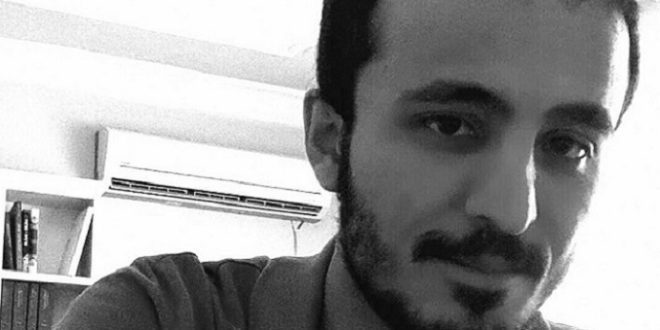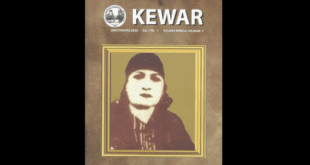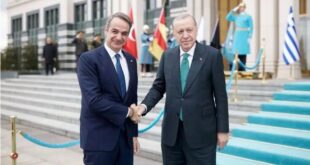Nine years had passed in exile since he left his hometown and he had lived in hopes of having a decent life during these long years. He thought all his efforts were in vain and he had no longer the desire to experience all this loneliness and suffering in this meaningless life.
Necat Ayaz
Baneh is a middle sized city in western Iran called by the Kurds Eastern Kurdistan. The location of the city in the northern slopes of the majestic Zagros Mountains near a major route to the Kurdish region in Iraq has given it a strategic importance. Aryan tribes which were the ancestors of the Kurds attacked the Assyrian Empire from here. Region around Baneh also became a shelter for Kurds who resisted against the Islamic invasion many times. The tradition of resistance against all kinds of invasions continued in the 20th century when the residents of the city carried out two major uprisings against the Persian regime. After centuries of Persian dominance, Baneh residents were happy to be part of first Kurdistan Republic of Mahabad in 1946 which was destroyed just one year later. The city experienced its last freedom in 1979 when Kurdish militia took advantage of the weakness of state authority in the region and liberated Baneh among other cities. Nevertheless, the Kurdish spring lasted for a short time and one year later was crushed with a bloody campaign by the new regime’s forces.
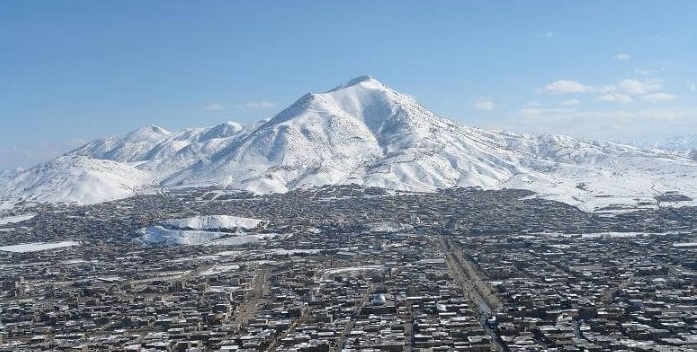
Hejir was fond of the education from the beginning though as he grew older, he began to interrogate the lack of Kurdish language in the official education system. He was brought up by patriotic parents who embraced Kurdish historical and cultural values above all.
War and life
When Hejir was born, it was the third year of the Iran-Iraq war which had devastating effects on both sides of the border, considerable part of which separated Kurdish territories shared between two states. His family was in danger like every other resident of the city expecting a chemical aerial attack from Iraqi Army. Zewe, Sardasht, Meriwan and other urban centers near the border had been subjected to such attacks before and thousands of civilians lacking any necessary protection had died instantly. The main priority of Hejir’s parents was to protect their family from these attacks and as soon as the alarm was given, they immediately took their children to the shelter that they had digged under their house. The first years of Hejir’s childhood passed under this constant atmosphere of fear of being poisoned by chemical attacks. The end of the war did not bring the peace and tranquility to Baneh and the Kurdish region since right after the war the clashes between the Kurdish Peshmerga and Iranian regime forces became more visible. He was 16 years old when this low intensive war ceased for a couple of years marking a new period of relief for the city.
Hejir was fond of the education from the beginning though as he grew older, he began to interrogate the lack of Kurdish language in the official education system. He was brought up by patriotic parents who embraced Kurdish historical and cultural values above all. In one of these intense interrogations of state policy for his people, he could not stand but ask the teacher why education in Kurdish was not possible. Asking such a question in a regime where any means of opposition to the official line resulted in persecution required courage and would have a price. Despite being a high school student, he was detained by the intelligence service upon the complaint of the teacher. He was interrogated and threatened by the intelligence unit not to think about such dangerous issues any more. This kind of reaction for his innocent question became a turning point in his life. He began to ask many questions about why his nation’s existence was denied, why his homeland was occupied by outsiders and why his nation went through so much suffering just because it was trying to live peacefully on its ancestral land.
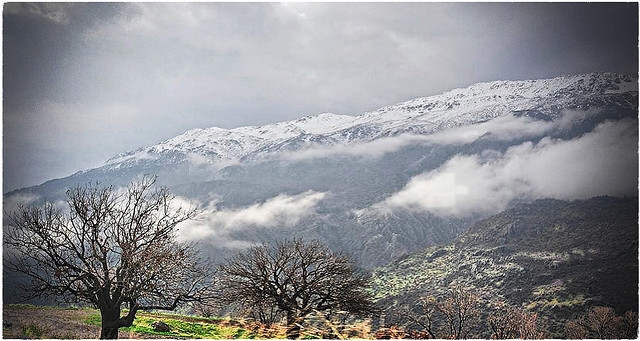
The city of his university (Tabriz) became a city of prison for him and it became quite obvious that there was no opportunity to finish his education.
University and imprisonment
When he enrolled in the Psychology Department of Tabriz University, he was further politicized and learned fully the answers for his questions. It was his first time to live outside of his hometown and what he experienced at the university and in this city would determine his fate. Tabriz is an Azeri city where Persian chauvinism has been successfully using the common shi’te sect with Azeri residents as a basis to maintain its hegemony. Even the slightest opposition to this faced hardest repression methods of the regime. Hejir was not a person to reconcile with this intolerable political and social climate and he worked hard among Kurdish students to create a group that would back Kurdish national struggle. Besides his organizational ability, he had a deep knowledge of Kurdish history, language and literature. So he was eager to speak and share his knowledge with everybody interested in different aspects of the Kurdish question.
Once, he was a speaker at an event organized by Kurdish students for the anniversary of the Halabja massacre. In his speech he bitterly condemned not only Saddam regime of Iraq that had carried out genocide in Halabja but also the Iranian regime’s policy against Kurdish people. This courageous speech drew the wrath of regime forces and he was immediately detained. After a deep interrogation accompanied with torture, he was imprisoned for one year and was sent to Tabriz Prison. The city of his university became a city of prison for him and it became quite obvious that there was no opportunity to finish his education.
In 2010, he left behind the beautiful Baneh and headed towards the high passages of the Zagros Mountains to flee Iran. He was still hoping to turn back one day and celebrate his people’s liberation with family and friends and to never again have to leave his country.
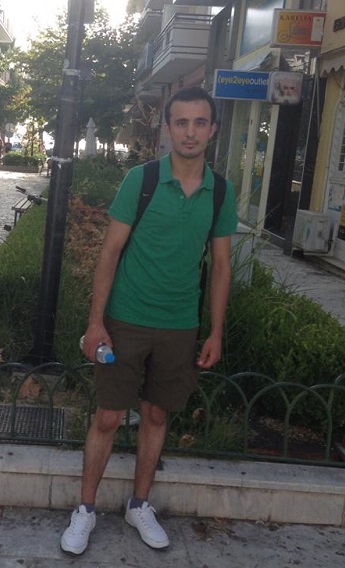
Leaving home and staying in Turkey
When he was released, he visited his family for the last time. Just a week after his release in 2010, he left behind the beautiful Baneh and headed towards the high passages of the Zagros Mountains to flee Iran. He was still hoping to turn back one day and celebrate his people’s liberation with family and friends and to never again have to leave his country.
As he reached south of Kurdistan, his hometown stayed behind the high mountains and the persecution was no longer the case for him. He wanted to pass to North Kurdistan and for this reason he did not stay much in this part of the country. This time he was not lucky enough and he was detained by the Turkish police at the entrance of the border. To remove the risk of being given to the Iranian regime, he claimed that he was an Iraqi Kurd. Upon this declaration, Turkish police gave him to Zakho police connected to the Kurdish Regional Government. The Kurdish police in Iraqi Kurdistan, however, sent him back to Turkey because he was not an Iraqi Kurd. As the Turkish police was identifying his identity, they were about to sent him to the Iranian border to give him back to his old oppressors. His family got alarmed and his cousin Hadi Sofizade living in Norway immediately flew to Turkey and on the next day reached the Kurdish city Sirnex/Sirnak where Hejir was kept in a police department. By ensuring the help of influential people who had ties with the provincial administration, Hejir’s cousin could stop his deportation to Iran. Hejir went to Silopya/Silopi district to apply for asylum at UN office following the suggestion of his lawyer. As he was persecuted in Iran, he was given refugee status after a short time. This status ended all the uncertainty and anxiety he had had since entering Turkey.
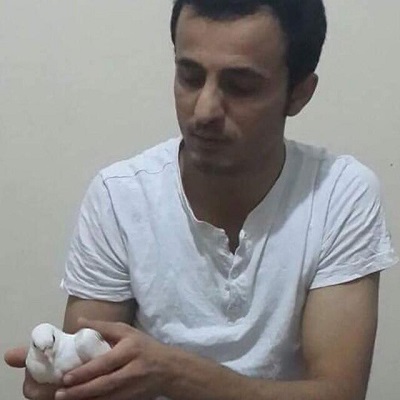
When he was crossing the Turkish-Greek border, he had hopes of a new life in Europe, full of happiness, and of success which would follow his relentless work towards liberation of his country.
He was not like many other Kurdish refugees who used Turkey as a country of transit in order to reach their country of destination. He liked the small city of Silopya/Silopi so much that he did not need to go to bigger Kurdish cities which might have presented more opportunities to him. He enjoyed his life with the host family who had much in common with him on the issue of Kurdish people’s national rights. Hejir was very happy with them and felt at home during the four years he stayed there. Nevertheless, these relatively peaceful conditions he had enjoyed during his long stay came to an end. After the termination of the peace process aiming to solve the Kurdish question by the Turkish government, a new wave of oppression began in the Kurdish region. On the other hand, there was an influx of refugees to Turkey following the escalation of the civil war in Syria and the occupation of Mosul city in Iraq by Islamic State. Following these events, UN stopped its programme of sending off refugees from Turkey to European countries. Considering this circumstance, Hejir found no other choice but to leave his country for the second time.
Imprisonment in Greece
One morning, before beginning his long journey towards the western end of Turkey, he said goodbye to the sorrowful members of his newfound family and left Silopya/Silopi with its view on the immense Cudi Mountain in the north. When he was crossing the Turkish-Greek border, he had hopes of a new life in Europe, full of happiness, and of success which would follow his relentless work towards liberation of his country. Before he began his journey towards Europe, he had decided to go to a Scandinavian country where he had hoped the conditions were more favorable for refugees. However, he was detained by the Greek police, which prevented him from going further away from the border. Ignoring his wish to continue his trip to his ultimate destination, police presented him with three choices. He could apply for asylum in Greece, stay in prison for 18 months for crossing the border illegally or, worst of all, even be deported to Iran. He had no other choice but to apply for asylum to avoid other unwanted results. Despite his preference of the most reasonable option of staying in Greece, he was not able to obtain his freedom easily. He was taken to the prison for more than 3 months although he had an asylum application pending and it was clear enough that he had fled from Iran as a political dissident.
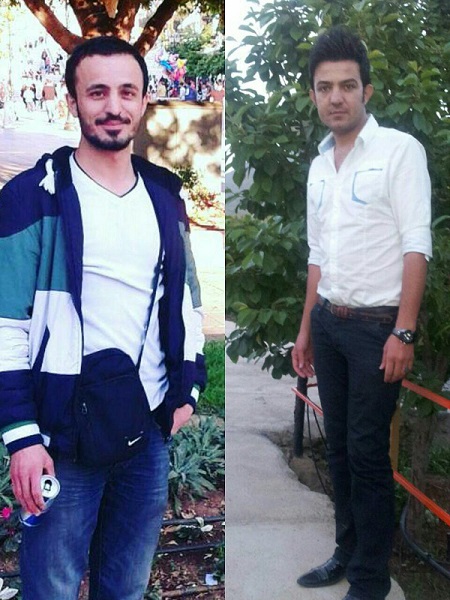
The man who got off the plane at Athens International Airport after spending six months in Norway was not Hejir that everybody had known. He became more introverted and preferred to make less contact with friends and society.
Seeking asylum in Norway
After the release from prison, he believed that he still had a chance to go to his country of destination to seek asylum. Till the last moment he had not received any news be it positive or negative about his application in Greece. He arrived to a Scandinavian country full of hope and plans for the future. At the end of this long period of seeking asylum, he left all the hardships behind and succeeded in getting to Norway. Unfortunately, he would not get what he expected and all his optimism would disappear with the unexpected rejection of his asylum application. The Norwegian asylum agency claimed that he had been given asylum in Greece and therefore he would have to be returned to that country. When he tried to find out the truth, Greece confirmed what the Norwegians claimed, justifying their unforgivable mistake with an excuse of technical incompetence. This was the major blow to his regenerated hopes after being able to reach his destination which he had awaited for five long years. He was so furious that he revolted against this unjust world and all kinds of challenges he had gone through just to have a new life far away from the persecution. From now on, his hopes for a new life and his efforts towards this began to gradually die. The man who got off the plane at Athens International Airport after spending six months in Norway was not Hejir that everybody had known. He became more introverted and preferred to make less contact with friends and society.
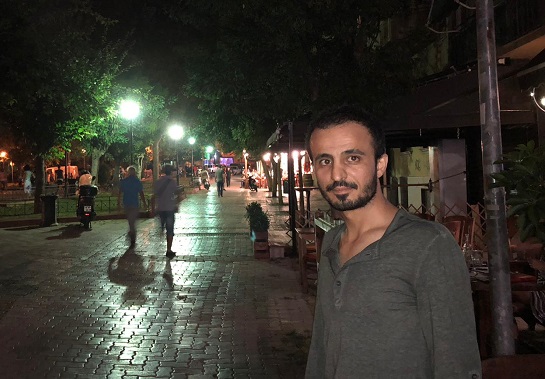
Approaching the end
He had such a bad luck that as soon as he got off the plane he was detained by the police. This time he was kept in prison on the ground that he had no resident permit in Greece. Two months passed in prison until the authorities found his file that included his resident permit. It was too much for him—he could not tolerate this unjust world where everything was working against him. He had been imprisoned twice in this long process of seeking asylum for a new life. He had not committed any crime against anyone; yet, he was treated like a criminal rather than a asylum seeker who was fleeing a violent authoritarian regime. Additionally, the answer to his asylum application had been lost without any reasonable explanation and was found only after he reached Norway. Not being able to go further nor to turn back to his homeland Kurdistan, having to live in a country which he thought he was not welcomed in had devastating effects on his psychological state.
His efforts to find a job succeeded and he began working as a translator in a non-governmental organization. He spoke Kurmanji and Sorani dialects of Kurdish as well as English. He also was learning Greek language very fast and began to use it in many contexts. However, his success at his job, a talent for languages and his friends’ compliments no longer made him happy. Despite his lack of motivation and joy for life in Athens, he worked hard in his office and was active among the Kurds in exile in Athens. He was hardly satisfied with the existing political activism on behalf of Kurds and desired a movement where he could use his talents and energy as much as possible. Unfortunately he would not find what he expected and his isolation and loneliness grew day by day alongside his disappointment.
Darkness dominated not just the skies of Athens but skies of Baneh, Tabriz, Silopi and Oslo, where he also tried to spin the web of his new life. When sun rose above these cities the next morning, Hejir Rencberi was no longer alive. He ended his life by committing suicide.
Recently, oppression has intensified against Kurdish people in both parts of his homeland. There are thousands of Kurdish political prisoners, while their supporters are on hunger strike in Turkey. In his last days, he was following the news of hunger strikes and oppression very carefully and felt very sorry that he was unable to do anything in exile. He stopped appearing in public and started feeling nothing in the streets, cafes and historical places where he used to be happy. Nine years had passed in exile since he left his hometown and he had lived in hopes of having a decent life during these long years. He thought all his efforts were in vain and he had no longer the desire to experience all this loneliness and suffering in this meaningless life. One night, he entered his small room where he lived alone for the last months. Darkness dominated not just the skies of Athens but skies of Baneh, Tabriz, Silopi and Oslo, where he also tried to spin the web of his new life. When sun rose above these cities the next morning, Hejir Rencberi was no longer alive. He ended his life by committing suicide.
 Infowelat Enformasyon Ji Bo Welat
Infowelat Enformasyon Ji Bo Welat
